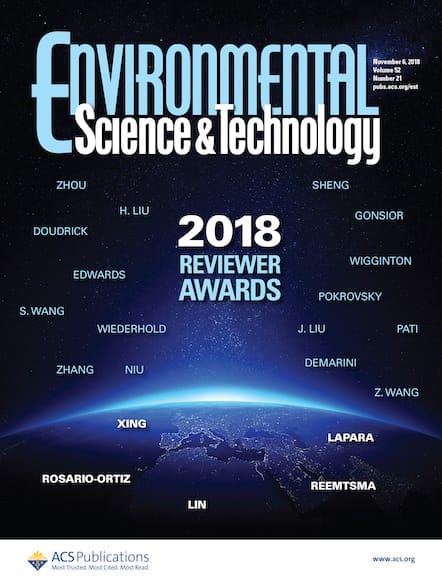Professor Menachem Elimelech was recently named one of the winners of the Outstanding Achievements in Environmental Science & Technology Award from Environmental Science & Technology. Professor Elimelech is the Sterling Professor of Chemical and Environmental Engineering at Yale University, where his research focuses on membrane-based processes for energy-efficient desalination and wastewater reuse. He also researches […]

Read on to learn more about Professor Elimelech and his work.
What does this award mean to you?
I am grateful that ACS and the editors have recognized the importance of our work on membrane-based technologies for desalination, water reuse, and brine management. Credit goes to my current and former graduate students and postdocs for their contributions.
What have been some of the key influences that have shaped how your career has developed?
The realization about two decades ago that water scarcity is a serious global problem and that climate change exacerbates water scarcity has inspired me to work on membrane technologies as a means to augment water supply by utilizing non-conventional water sources such as seawater and wastewaters. I believe that seawater and brackish water desalination and wastewater reuse, when used appropriately, can be sustainable methods for augmenting water supply in water-scarce regions.
What do you consider some of the most important highlights from your career so far?
This is a tough question to answer. I am proud of the many graduate students and postdocs that I mentored who are now quite successful in their careers. I am also proud of the environmental engineering program at Yale University, which I founded over two decades ago. The program has graduated outstanding individuals who are working relentlessly to solve our environmental challenges. I am also happy that our papers help to set the research agenda in membrane-based desalination and water purification and steered the membrane community to relevant research topics that have a direct impact on industry and humanity.
Describe your current area of research (or areas of interest).
My current research is in the general area of membrane-based technologies at the water-energy nexus. Specifically, we are working on membrane-based processes for energy-efficient desalination and wastewater reuse, advanced materials for next-generation environmental separation and water decontamination technologies, and fundamental mechanisms of selective ion separations in membrane systems. In recent years, we have also worked on the development of technologies for the management of brines from inland desalination plants and industrial wastewaters, such as those produced in the oil and gas industry. Specifically, we proposed the use of ultrahigh-pressure reverse osmosis (UHPRO) as a technology to displace energy-intensive thermal evaporators that are commonly used for brine management. More recently, we have developed a new membrane-based technology for concentrating brines, referred to as low salt rejection reverse osmosis (LSRRO).
What motivates you to be a researcher in this field of environmental science & technology?
I always wanted to work on topics related to water, maybe because I grew up in southern Israel, a semi-arid region that receives less than five inches of rain annually. Water is our most precious resource, and I am excited to work on technologies to ensure adequate and safe water globally.
What are the major challenges in this area, and what type of work can we look forward to seeing from you in the future?
Considering the accelerated adverse impacts of climate change on water resources, one of the major challenges will be to augment freshwater supply using unconventional water sources. Industrial wastewaters represent a major source of unconventional water that can be reused to extract fresh water and minimize discharge to the environment. For the reuse of industrial wastewaters, there is a need to develop energy-efficient membrane-based technologies that can achieve high water recovery and produce fresh water at a low cost. There is also a need to investigate the potential of resource recovery from the concentrated brines generated during the reuse of these industrial wastewaters.
What is your advice for young investigators?
I would encourage young researchers to find the right balance to work on fundamental research but also on relevant research that may help humanity. This may be challenging because our university tenure system and prestigious journals are biased toward “hot” topics rather than applied and relevant research. I also encourage young investigators to focus their research on one or two thrusts initially and make an impact before expanding their research later in their careers. Lastly, researchers should enjoy their research and mentoring and inspire their students to be inquisitive and happy in what they are doing. A happy and inspiring work environment will lead to creative research.
